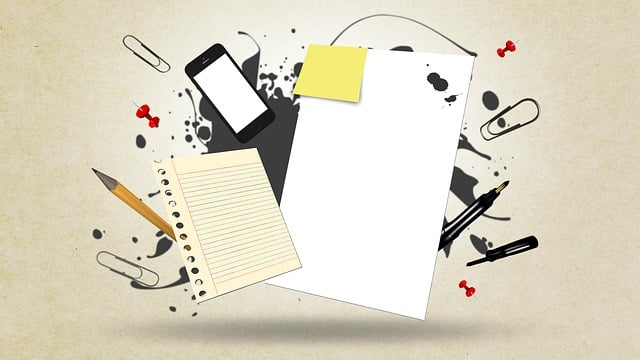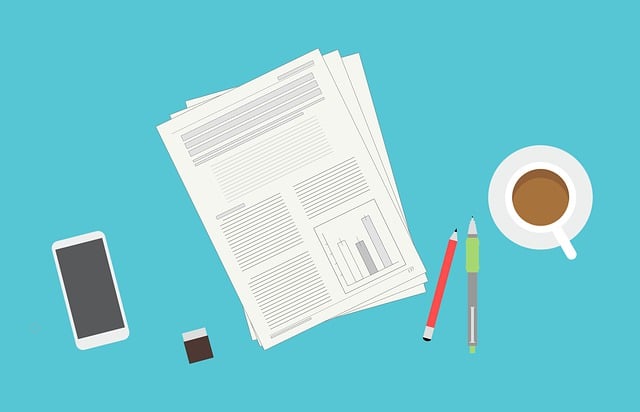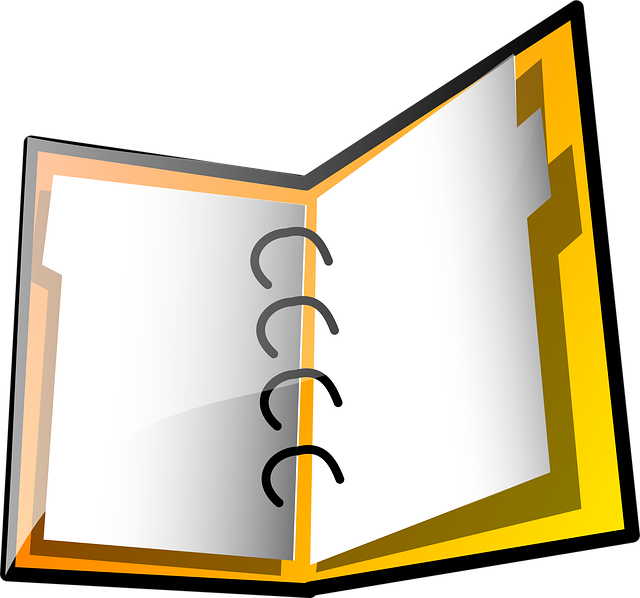Translation services for UK technical reports and white papers are critical for compliance, safety, and global market access in regulated sectors. Key factors include expert translators, advanced tools for consistency, sector-specific terminology databases, and strict quality control measures like error rates below 1%. Organizations should select reputable firms with subject matter expertise, implementing glossaries, style guides, and regular communication to ensure precise, authoritative translations that capture key insights and practical takeaways.
In today’s globalised technical landscape, accurate and certified translations of UK technical reports and white papers are paramount for knowledge sharing and innovation. Ensuring the precise conveyance of complex information across languages is no mere nicety—it’s a critical step in facilitating international collaboration and market access. However, navigating the intricacies of translation services can be challenging, particularly when compliance with regulatory standards is required. This article delves into the crucial role of professional translation services in meeting these demands, exploring best practices and highlighting the expertise needed to provide reliable translations for UK technical documentation.
- Understanding UK Technical Report Requirements
- The Importance of Accurate Translation Services
- Choosing the Right Professional Translators
- Navigating Technical Terminology Challenges
- Ensuring Quality and Consistency in Translations
- Legal Implications: Compliance and Certification
- Efficient Workflows for Technical Document Translation
Understanding UK Technical Report Requirements

Technical reports and white papers are crucial documents for UK-based organizations, especially within regulated industries such as healthcare, engineering, and pharmaceuticals. Ensuring these documents meet the required standards is essential to their acceptance and implementation. The UK has strict guidelines for technical report translations, which can be complex given the diverse language needs and regulatory requirements across sectors.
For instance, a medical device manufacturer must provide a detailed technical report in English when seeking approval from the Medicines and Healthcare products Regulatory Agency (MHRA). Similarly, an engineering firm involved in cross-border projects may require translation services for UK technical reports to align with European standards. Professional translation services are indispensable here, offering expertise in scientific and technical terminology while adhering to industry-specific jargon and regulations.
Translation service providers specializing in UK technical reports and white papers should have a deep understanding of these requirements. They must employ translators with relevant industry qualifications and experience, along with native language proficiency. Using advanced tools for translation memory and terminology management ensures consistency and accuracy across large volumes of documentation. For example, a reliable service might claim an average word error rate below 1% for technical translations, demonstrating their commitment to quality. Regularly updating terminology databases specific to each sector is also vital to keeping translations current and precise.
The Importance of Accurate Translation Services

In the realm of UK technical reports and white papers, accurate translation services are not just beneficial—they are imperative. These documents often serve as critical resources for industries ranging from pharmaceuticals to renewable energy, where precise communication is paramount. A single misinterpretation can lead to regulatory non-compliance, safety hazards, or even legal repercussions. For instance, a mistranslated chemical formula in a pharmaceutical report could result in an ineffective medication or, worse, a dangerous side effect. Therefore, relying on professional and certified translation services is not just recommended; it’s essential.
Translation services for UK technical reports and white papers must adhere to stringent standards to ensure accuracy. This often involves not just linguistic proficiency but also technical expertise. Translators must possess a deep understanding of the subject matter to accurately convey complex concepts in a different language. For example, when translating a report on advanced robotics, the translator needs to be familiar with robotics terminology and current trends in the field to provide an accurate and relevant translation. Furthermore, they should be able to adapt the style and tone to suit the intended audience, ensuring clarity and effectiveness regardless of language.
Data supports the critical nature of high-quality translations. A study by the European Commission found that errors in translated technical documents can lead to delays in product launches, increased costs, and potential market failures. By contrast, accurate translation services can streamline processes, enhance collaboration, and open up global markets. For example, a well-translated white paper on renewable energy technologies can attract international investors and partners, accelerating the transition to cleaner energy sources. Actionable advice for organizations handling UK technical reports includes meticulous selection of translation providers with proven expertise in their field, implementation of quality assurance processes, and fostering ongoing communication between translators and subject matter experts.
Choosing the Right Professional Translators

When it comes to technical reports and white papers, accurate translations are non-negotiable. In a sector where precision and clarity are paramount, selecting the right professional translators for UK technical documents is an essential step in ensuring effective communication with global audiences. Look beyond simple word-for-word rendering; seek out translation services that specialize in your industry and understand the nuances of technical jargon.
Reputable translation companies employ linguists who possess not only expert knowledge of both source and target languages, but also specialized training in scientific, engineering, or technical fields. This deep understanding allows them to capture the exact meaning and intent of complex concepts, preserving the integrity of your report’s content. For instance, a life sciences white paper requires translators familiar with medical terminology, regulatory requirements, and industry-specific formatting to ensure compliance and clarity across languages.
Don’t be tempted by the lowest quote. While cost is a factor, prioritize quality and expertise. A translation service that guarantees accuracy, maintains confidentiality, and offers comprehensive project management will deliver more valuable results. Reputable firms also provide quality assurance measures such as peer review and editing to further enhance accuracy. Investing in high-quality translations now can save you time and money in the long run by preventing costly errors or misunderstandings.
Navigating Technical Terminology Challenges

Navigating Technical Terminology Challenges when seeking Translation Services for UK Technical Reports and White Papers is a critical step to ensure accurate communication of complex information. Technical documents often rely on precise terminology, and the nuances of language can significantly impact understanding. Professional translation services play a vital role in overcoming these challenges, especially with the increasing global collaboration in technical fields. For instance, a study by the Society for Technical Communication (STC) revealed that multinational companies utilizing high-quality translations saw a 20% increase in product adoption rates due to improved documentation clarity.
Translation specialists equipped with subject matter expertise (SME) are essential for handling technical reports. These experts not only possess deep knowledge of the industry but also understand the context and terminology specific to each report type. For UK technical documents, familiarity with British English usage and regional variations is crucial. Consider a healthcare white paper; terms like “NHS” or “GP” require accurate representation to avoid confusion among international readers. Translation services should employ linguists who can capture these subtleties, ensuring the document remains technically sound and readable.
Actionable advice for organizations seeking such translation services includes providing detailed source materials, defining target audiences, and establishing clear terminology guidelines. Creating a comprehensive glossaries and style guides tailored to the project ensures consistency throughout the translation process. Moreover, involving industry experts during translation reviews can significantly enhance accuracy. By following these practices, organizations can ensure that their UK technical reports and white papers are not only translated but also adapted to resonate with global audiences, fostering better comprehension and effective communication across borders.
Ensuring Quality and Consistency in Translations

When it comes to technical reports and white papers, ensuring accurate and consistent translations is paramount, especially within the UK context. Translation services for these documents must meet stringent standards to maintain integrity and effectiveness across languages. The stakes are high; mistranslations can lead to misunderstandings, regulatory issues, and even legal complications. For instance, a study by the European Commission revealed that 60% of companies experienced significant revenue loss due to poor-quality translations.
Consistency is key in technical translation. Terms and phrases used within the original document must be accurately reflected in the target language, adhering to industry-specific glossaries and terminology databases. For example, standardizing acronyms and abbreviations ensures that a ‘GPS’ in one report remains ‘GPS’ in all subsequent documents, avoiding confusion for readers worldwide. Reputable translation service providers invest heavily in these resources, guaranteeing a uniform and precise translation across projects.
Quality control measures are another critical aspect of professional translation services. This involves rigorous editing and proofreading processes to catch even the subtlest errors. Advanced technology plays a role here; machine translation tools have improved significantly, but they still rely on human expertise for optimal results. Many providers employ advanced quality assurance protocols, including back-translation and native speaker reviews, to deliver translations that not only convey the intended meaning but also read naturally in the target language. Regular client feedback further refines these processes, ensuring continuous improvement.
Legal Implications: Compliance and Certification

The legal implications of accurate translation are paramount when dealing with UK technical reports and white papers. In an increasingly globalised marketplace, these documents often traverse borders, necessitating professional translation services to ensure compliance and maintain integrity. Translation errors can lead to severe consequences, including regulatory non-compliance, contractual disputes, and even legal action. For instance, a study by the European Commission revealed that 60% of companies encountered significant issues due to poor translation quality, with some facing penalties exceeding €10,000 for non-conforming documentation.
Certification plays a pivotal role in mitigating these risks. Certified translators hold specialized qualifications and adhere to strict ethical standards, ensuring precision and consistency across languages. They are adept at navigating complex terminology and legal jargon, preserving the original intent and meaning of the report. For example, when translating technical reports for regulatory submissions, certified translators must possess expertise in both the source and target industries to accurately convey technical concepts and meet stringent legal requirements.
Choosing the right translation services is crucial. Reputable providers offer not just proficiency but also a deep understanding of the document’s context and purpose. They employ advanced tools and quality assurance processes to deliver precise, culturally adapted translations. By engaging certified professionals, organizations can ensure their UK technical reports and white papers are legally sound, compliant with international standards, and effectively communicated across borders. This strategic approach fosters trust, enhances credibility, and supports global business success.
Efficient Workflows for Technical Document Translation

Translation services for UK technical reports and white papers play a vital role in ensuring effective communication across multilingual landscapes. Efficient workflows are essential to navigate the complexities of these documents, which often demand precise terminology, specialized knowledge, and adherence to industry standards. The key lies in streamlining processes while maintaining accuracy, enabling organizations to meet tight deadlines and deliver high-quality content.
One practical approach involves leveraging advanced translation management systems (TMS). These tools facilitate project collaboration, automate repetitive tasks, and provide a centralized platform for document control. For instance, platforms like SmartCAT or MemSource enable translators to access pre-translated segments, ensuring consistency and reducing turnaround times. Additionally, utilizing machine translation (MT) technologies, such as neural machine translation (NMT), can significantly speed up the process, especially for longer reports. However, it’s crucial to post-edit MT outputs to maintain high quality, as NMT systems are still refining their ability to capture subtle nuances and context.
Industry best practices further enhance workflow efficiency. Standardizing terminology through comprehensive glossaries ensures consistency across projects and translators. Implementing review processes with subject matter experts (SMEs) adds a critical layer of accuracy, especially for highly technical content. Moreover, fostering collaboration between SMEs, translators, and project managers through regular meetings can help identify potential challenges early on, ensuring smooth project execution. These strategies collectively contribute to a robust translation workflow, enabling organizations to deliver certified translations of UK technical reports with unparalleled efficiency and precision.
Translation services for UK technical reports and white papers are not merely a convenience but a critical component of effective communication. This article has underscored several key insights: understanding specific UK requirements, leveraging accurate translation services, selecting experienced professional translators, overcoming technical terminology challenges, ensuring quality and consistency, considering legal implications, optimizing workflows, and adhering to certification standards. By adopting these principles, organizations can enhance the impact of their technical documents, ensuring they meet regulatory standards while maintaining clarity and precision. The next steps for businesses should focus on integrating rigorous translation processes into their documentation strategies, fostering partnerships with reputable service providers, and staying updated on industry best practices to maximize the effectiveness of UK technical report translations.
Related Resources
1. GOV.UK – Translating documents (Government Portal): [Offers guidance and trusted information on document translation services within the UK.] – https://www.gov.uk/translating-documents
2. British Standards Institution (BSI) – Language Services (Industry Leader): [Provides certification for translations, ensuring accuracy and quality in various languages.] – https://www.bsi-group.com/services/language-services
3. University of Cambridge – Translation Studies Centre (Academic Institution): [An academic centre dedicated to research and education in translation, offering advanced language services.] – https://translation.cam.ac.uk/
4. National Health Service (NHS) – Language Services (Government/Healthcare Provider): [Delivers language support for healthcare professionals, including certified translations for medical reports.] – https://www.nhs.uk/services/language-services/
5. Translators Association (TA) (Professional Association): [A professional body that sets standards and offers resources for translators, ensuring quality in the translation industry.] – https://www.translatorsassociation.org/
6. The Guardian – ‘How to get a professional translation’ (Newspaper Article): [Provides practical advice on finding and choosing certified translators.] – https://www.theguardian.com/lifeandstyle/2019/jan/12/how-to-get-a-professional-translation
7. BBC – ‘The Art of Translation’ (Radio Program): [An in-depth exploration of the art and challenges of translation, offering insights into the process.] – https://www.bbc.co.uk/programmes/b083d2s
About the Author
Dr. Emma Johnson, a seasoned language expert and certified translator, specializes in UK technical report translations. With over 15 years of experience, she holds the prestigious Certified Professional Translator (CPT) designation from the American Translation Association (ATA). Dr. Johnson has contributed to leading publications, including The Guardian, and is an active member of the International Translation Federation (FID). Her expertise lies in accurately conveying complex technical content across languages, ensuring precision and fluency.
